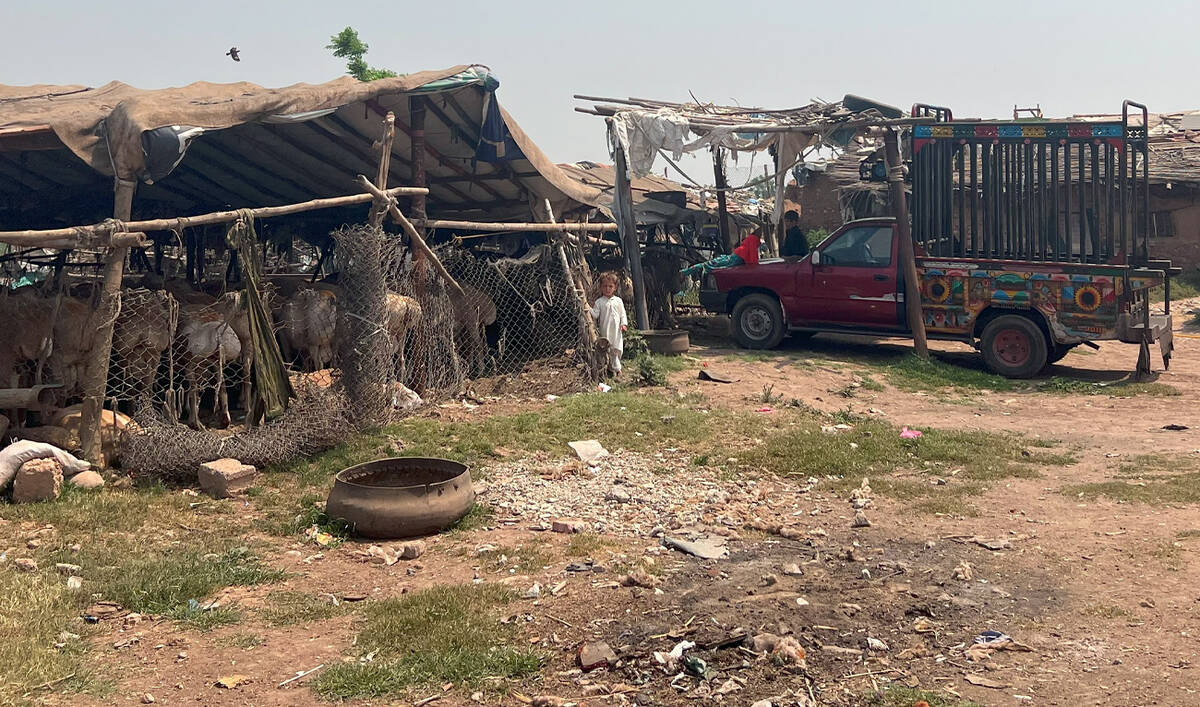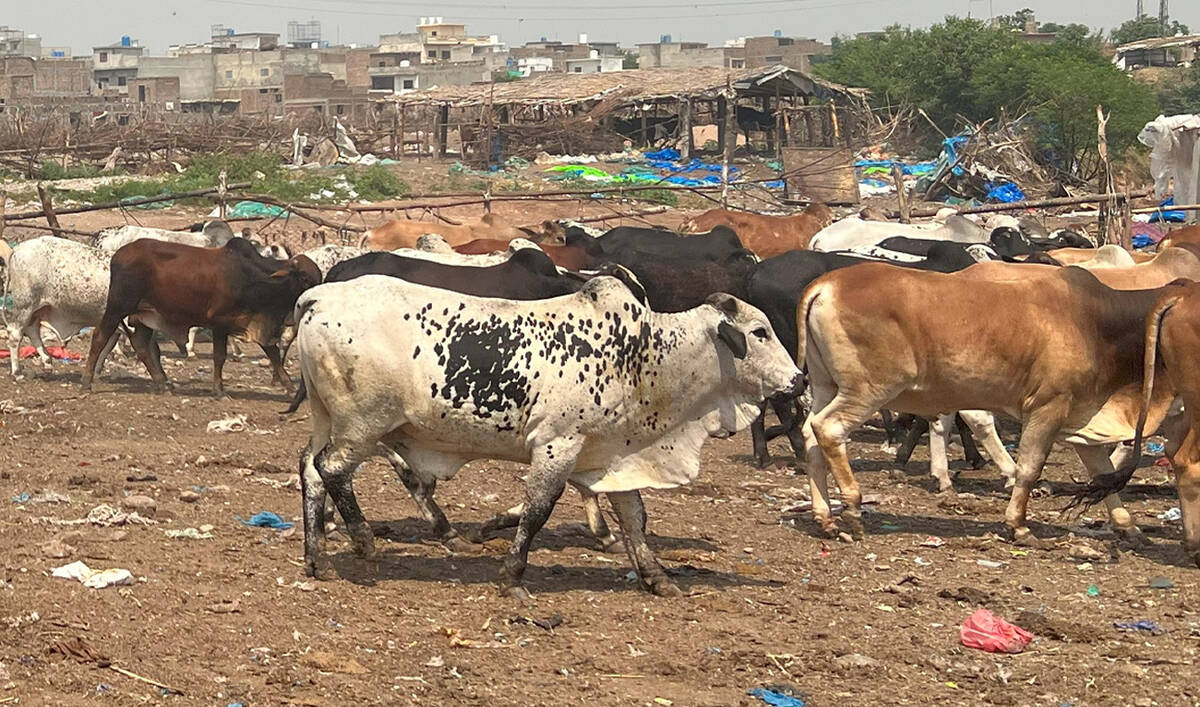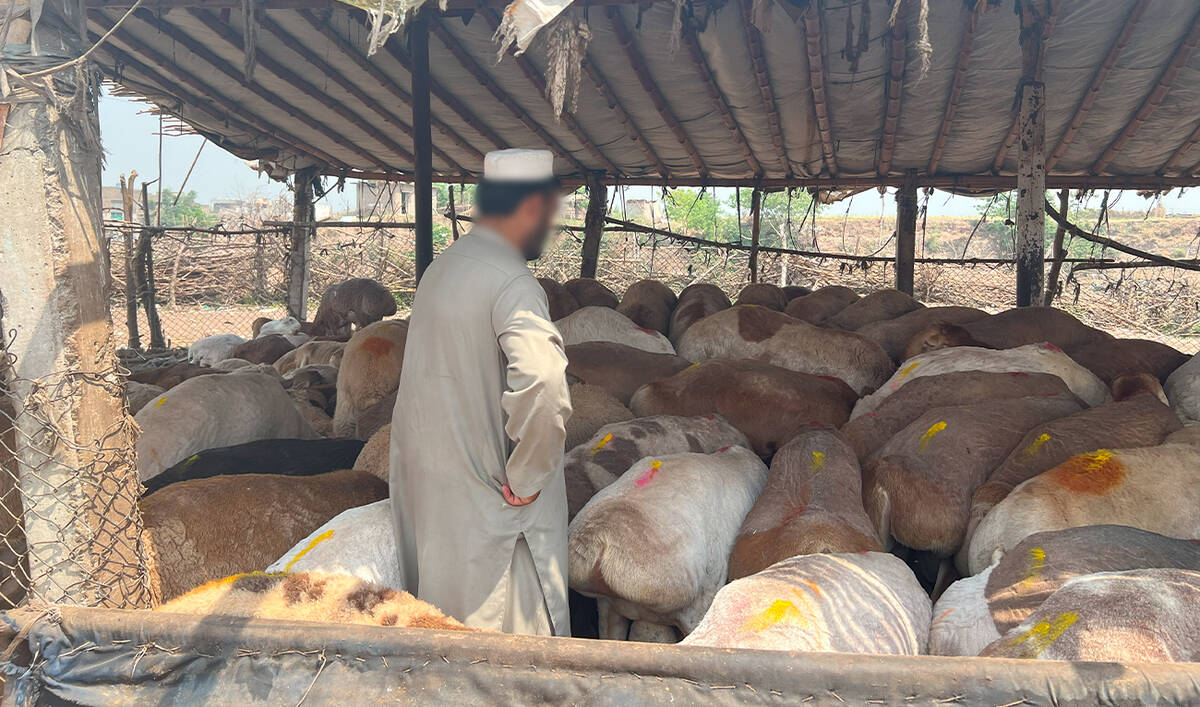ISLAMABAD: Saeed Khan tapped his wooden staff rhythmically as he guided over two dozen cattle and sheep into a livestock enclosure bound by mud and fencing fashioned out of thorny branches. The soft sound of hooves over the dusty ground could be heard as Khan went about his work, with the occasional sound of bleats filling the air.
Khan, 48, is a member of the nomadic Kuchi tribe that traces its origins to Afghanistan. The Kuchis depend on animals for their livelihood and their movements historically were determined by the weather and the availability of good pastures.
Khan, whose ancestors used to come to Pakistan only during the winters and would return to the high-altitude pastures of Afghanistan during summers, made Pakistan his permanent home in the ‚Äė80s, but he now fears for the future, with
Islamabad’s June 30 deadline for Afghan Proof of Registration (PoR) card holders to leave the country over by almost two weeks.
‚ÄúAt first, there wasn‚Äôt any card issue,‚ÄĚ Khan told Arab News, minding his flock in Islamabad. ‚ÄúOur people didn‚Äôt know much about it. It‚Äôs only now that the problem has come up, that we‚Äôve realized.‚ÄĚ

Children from the Afghan Kuchi community play outside their makeshift homes on the outskirts of Islamabad, Pakistan, on May 1, 2025. (AN)
The problem Khan referred to is a controversial deportation drive that Pakistan launched in 2023 against what it described as ‚Äúillegal foreigners,‚ÄĚ mostly Afghans, in the country. Islamabad this year said it wanted 3 million Afghans to leave the country, including 1.4 million people with PoR cards and some 800,000 with Afghan Citizen Cards (ACC).
According to data from the UN refugee agency (UNHCR), more than 900,000 Afghans have left Pakistan since the expulsion drive began. While Pakistan deported thousands of ACC holders, the government said those with PoR cards could stay until June 30.
The Pakistan government cites economic stress and security concerns as reasons to push ahead with the expulsion drive, while human rights advocates say the move threatens people who have lived in Pakistan for decades and contributed significantly to its informal economy and urban infrastructure.
The Kuchi nomads would spend the winters in the Indus Valley region or parts of southern Afghanistan and Balochistan before heading for the Hindu Kush mountains in the summer each year, according to Professor Thomas Barfield, president of the American Institute of Afghanistan Studies and a leading anthropologist on Afghan culture at Boston University. Presently, they number around a million in Pakistan and Afghanistan.
Khan, after settling in Pakistan, has raised animals not only to sell them for the Eid Al-Adha sacrifice, when cattle are in high demand, but also for exports.
‚ÄúI do both cattle and sheep [farming],‚ÄĚ Khan explained. ‚ÄúEspecially Turkish sheep for sacrifice. [But] most of our animals go to factories, one in Raiwind Lahore, one in Kasur, one in Kamoke, then they‚Äôre exported abroad.‚ÄĚ

Cattle return to their shelter at a livestock enclosure on the outskirts of Islamabad, Pakistan, on May 1, 2025. (AN)
There are many mud shelters near Khan’s home along the Qur’ang river in Islamabad that now lie abandoned. They were once inhabited by Kuchi families who had ACCs but were expelled by Pakistani authorities.
The empty shelters serve as a stark reminder for Khan and other PoR card-holders such as his nephew, Mohammad Ullah, of what the future may bring.
‚ÄúThis place where they used to live, they left it as they were,‚ÄĚ Ullah told Arab News, pointing to the empty huts.
Some ACC holders remain, concealing their identity out of fear of deportation, but the majority of Kuchis here holds PoR cards. Some of the Kuchis were left out when they were being registered as they were away herding animals in remote areas.
A Kuchi person, who spoke to Arab News on condition of anonymity, said his entire family had PoR cards except for him.
‚ÄúThe thing is, we have six children here. If I go to Afghanistan, my children will stay here, right?‚ÄĚ he asked. ‚ÄúSo, what will I do there, and what will they do here?‚ÄĚ

An ACC cardholder from the Afghan Kuchi tribe looks at Turkish sheep inside his livestock enclosure in Islamabad, Pakistan, on May 1, 2025. (AN)
Khan also worries about his livestock and says he would have to sell them all if Pakistani authorities forced him to leave.
‚ÄúBecause they won‚Äôt let us take it across the border [to Afghanistan],‚ÄĚ he said, bearing a tensed look on his face.

















